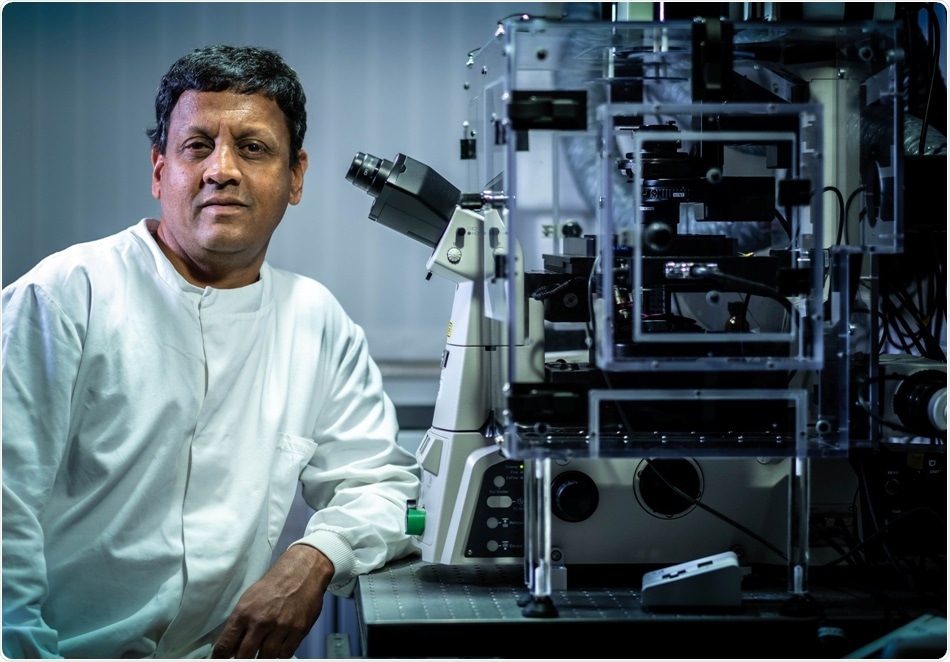Researchers in Warwick Medical School at the University of Warwick have developed a way to create more crucial reagents for use in COVID-19 tests that could also provide enhancements to the use of, and production of, future tests.

Professor Mohan Balasubramanian of Warwick Medical School.
The high demand for the reagents used COVID-19 tests is creating some supply issues in the UK (and even more so for developing countries) so the University of Warwick researchers decided to try themselves to make more of the enzymes needed to produce reagents using Warwick Medical School's laboratories, that could then be used in the commercially available testing kits.
They not only succeeded in producing more of those crucial and much sought-after enzymes that will make more reagents for testing kits, they may also have found ways that could extend and simplify their use in COVID-19 tests.
The team produced a package of three key enzymes that are key to producing more reagents for COVID-19 tests:
- A Reverse transcriptase (an enzyme used to generate DNA from an RNA template),
- A Taq polymerase.
- An RNAse inhibitor (also known as RNAsin).
- rTth, A hybrid enzyme with reverse transcriptase and DNA polymerase activities.
They then provided these to laboratories in two UK hospitals , who then tested and confirmed that they were effective in creating more Covid-19 testing. The same materials have also been sent and to the Africa Centres for Disease Control and Prevention (Africa CDC)where the need for more reagents is even more pressing.
The Warwick research team's work may also provide opportunities enhance the current commercial tests, extending the range of temperatures they can be used at, and maybe even simplifying their future production
Professor Mohan K. Balasubramanian, who together with Professor Karuna Sampath, is leading this work in Warwick Medical School at the University of Warwick said:
"The commercial providers of the reagents and enzymes have themselves found and described eight interesting mutations to their reverse transcriptase, but to our knowledge they had not yet all been combined in the same molecule."
"We have now done that and found that that this actually improves the enzyme's activity across a wide range of temperatures."
We have also made two further useful enzymes that would support the production of more reagents for Covid-19 testing. In particular a Taq-related polymerase (rTth polymerase), which itself has the reverse transcriptase activity which would greatly simply the reagent production process and also render the reagent directly applicable in a single-step test."
Mohan K. Balasubramanian, Professor, University of Warwick